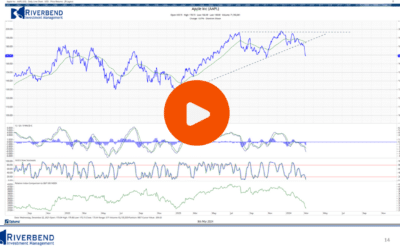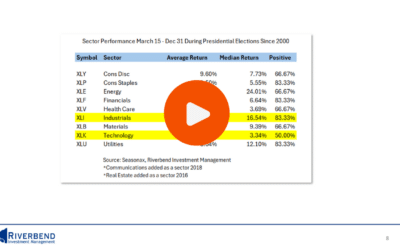In the world of investing, few phrases are as exhilarating as “bull market”. These words bring to mind an economy brimming with opportunity, a time when stock prices are steadily rising, promising lucrative returns for investors.
However, despite this promising trend, an intriguing anomaly persists: many investors remain pessimistic even during a bull market.
To the uninitiated, this may seem counterintuitive. After all, isn’t a bull market the perfect time to maximize profits and cultivate one’s portfolio?
While this principle holds true, the complexities of investor psychology paint a more nuanced picture.
Bubble Fears
The most apparent psychological barrier hindering investor optimism during a bull run is the specter of a market bubble.
The investment community’s collective memory is influenced by past financial catastrophes such as the 2000 dotcom bubble or the 2008 housing crisis, leaving a lasting imprint.
Investors are acutely aware of the concept that what goes up must come down, and sometimes the descent can be quite dramatic. This knowledge can lead to paranoia, as every stock surge is viewed as a precursor to an impending crash.
Greed and Envy
Investing is not merely a game of numbers, but also a battleground of emotions. In bull markets, greed and envy tend to flourish and can be devastating.
As some investors reap enormous profits, others may feel left behind, leading to investment decisions driven by envy rather than sound financial analysis.
Similarly, greed can distort an investor’s judgment.
The allure of quick riches can blind one to the inherent risks, potentially leading to over-leveraging or overexposure to volatile sectors. Fear of missing out (FOMO) only exacerbates this, often pushing investors to enter at peak prices, only to be caught off-guard by market corrections.
Anchoring Bias and Loss Aversion
Anchoring bias is a cognitive bias that significantly impacts decision-making, especially during bull markets. This bias occurs when individuals overly rely on the initial piece of information, also known as the “anchor.”
In the context of investing, individuals who have experienced bear markets may fixate on low prices from the past and consider current prices as “too high,” even if they are rational within the current bull market. Unfortunately, this leads to missed opportunities for potential gains.
Additionally, another influential factor for investors is loss aversion.
Loss aversion is a psychological principle that highlights how losses have a much greater impact on individuals than equivalent gains. Although a bull market presents promising opportunities for significant gains, the fear of potential losses stemming from a market downturn becomes a substantial psychological barrier.
By recognizing and understanding the effects of anchoring bias and loss aversion, investors can make more informed decisions to navigate and maximize their returns in fluctuating market conditions.
Overcoming Psychological Biases
To overcome pessimism and fully capitalize on a bull market, investors need a solid strategy. This entails disciplined and informed investing, which involves having a clear investment plan, staying committed to it, and filtering out market noise.
Instead of fixating on short-term market fluctuations, investors should prioritize fundamentals and long-term trends. Diversification is also vital – spreading investments across different sectors and asset classes helps to mitigate risk.
Emotional resilience is equally crucial. Recognizing that emotions like fear and greed can cloud judgment is the first step to effectively managing them. It’s important to remember that investing is a marathon, not a sprint.
Focus on the Plan
Start by focusing on planning. Understanding the psychology behind investor pessimism in a bull market not only provides intriguing insights into human behavior but also offers valuable lessons for creating resilient investment strategies.
Armed with this knowledge, investors can navigate the stock market’s rough waters with confidence, ultimately achieving their financial goals even in the midst of a raging bull market.




